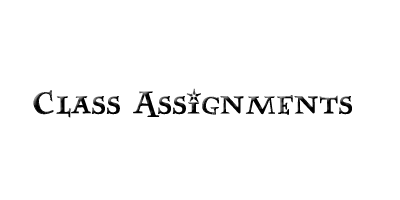Note:
All written work will be submitted and returned via the Dropbox on
Sakai. In the event that Sakai is down, you may email your written work
directly to me (ajacobs [at] scrippscollege.edu).
Class Participation & Sakai Postings (20%)
Attendance in class is mandatory; more than four absences will result in a lowering of your participation grade.
Because this class is a small
seminar, robust participation from all students is required. "Robust"
means not merely attending class, but actively participating in our
discussion of the readings.
In
order to help us along, the class has been divided into two groups
(Team Tuesday and Team Thursday). You may give your groups different
names if you want.
Each class day, each member of one group is
responsible for posting comments on the day's readings. Comments may be
any or all of the following:
1. Questions about the readings.
e.g., "What did Freud mean when he said..." "Why does James assume
that..." "How did other people understand Marx's discussion of..."
2. Observations about the readings.
e.g., "I noticed that McCarthy Brown uses 'we' when she talks about..."
"Jonathan Z. Smith has really long footnotes..." "Weber's discussion of
capitalism seems unaware of..."
3. Comparisons between readings
(for that day or from another day). e.g., "Even though Marx said X,
Engels seems to think Y..." "Covington described his experience as G,
but Orsi talks about it as if H..."
4. Additional information about the
readings. e.g., "If you're wondering where Sand Mountain is, click
here..." "I found this video that summarizes Capital in stop-motion..."
Questions, observations, and
comparisons should be as specific to the readings as possible;
additional information should be relevant.
Group postings should be up by
around dinner time the evening before class; the members of the other group are
responsible then for posting responses to these comments (which should
be up by the time you go to sleep). Responses
may be brief or lengthy, but should be clear and relevant.
Digital warning: In our digital age, we sometimes speak online
more casually and less thoughtfully than in "real life" (both in terms
of information and in terms of people's feelings). Please conduct
yourself in the Sakai forums with the same care and respect that you do
in class.
Response Papers (10% each X 3 = 30%)
After each major "unit" (Origins, Approaches, Identities) you will choose one or two texts
from that unit of class about which to write an analytic response.
Responses should be ca. 750 words, typed, double-spaced, turned in to
Sakai Dropbox by 2pm on February 21, March 28, and May 2.
Your responses should address the following question in some manner: What does religion mean to the author(s) of this text?
Obviously your approach will be different when analyzing a
classic text on religion's origins, a text that demonstrates a
particular approach to religion, or a text that contemplates the
intersection of religion and identity. You should have this question in
mind as we do the readings, so that you are prepared to write your
response at unit's end.
Debate & Debate Write-Up (20%)
At the end of the semester,
on April 27, the class will be divided into teams and we will hold an
in-class debate on the following subject:
Resolved: It is useful to study religion.
Debate rules and format may be found here.
Teams will be chosen earlier in the semester at random, and we
will spend some time in the last weeks of class discussing the
parameters of the debate (I am open, for instance, to tweaking the
debate resolution).
I will be inviting the other professors of religious studies at the Claremont Colleges to act as judges in the debate.
Every member of the team must participate in the debate, although that
doesn't necessarily mean everyone must speak in the debate.
With your final project (due on May 9) you must turn in a 500-1000 word
write up of the debate explaining the following:
a) How did you contribute to your debate team?
b) What was your opinion of the debate resolution going into the debate? Did the actual debate change your mind?
c) Was the debate resolution fairly framed?
Final Paper (30%)
You have a choice of the following options for a final paper:
a) analyze a recent scholarly work of religious studies from the
perspective of its use of particular methods or theories (click here for a list of suggested works);
b) analyze a "classic" scholarly work of religious studies from the
perspective of its use of particular methods or theories (click here for a list of suggested works);
c) analyze a particular religious phenomenon or artifact using any of
the methods or theories we have studied in class (it is suggested you
meet with the professor if this is your preferred option).
You must choose a paper topic by spring break and communicate that choice to the professor.
Papers are due to Sakai Dropbox by 5pm on May 9. Graduating seniors must turn in their final papers by the last day of class (May 2) at 5pm.
Papers should be around 2500-5000 words long.
return to home page
|

